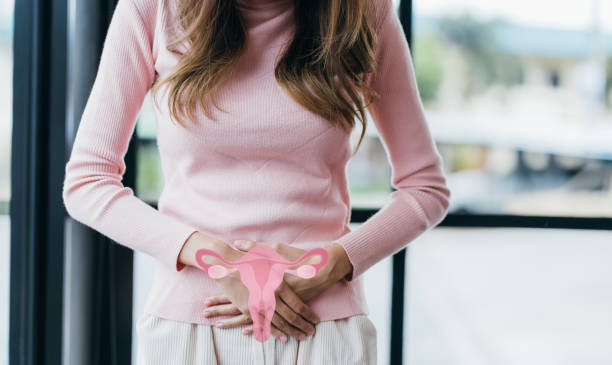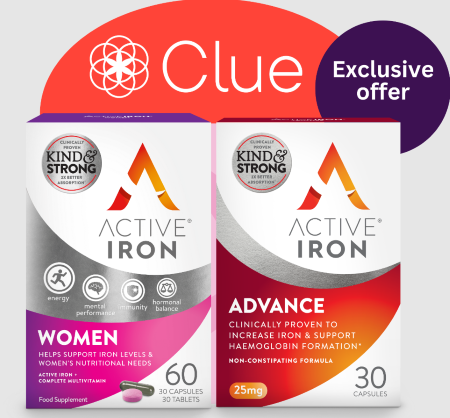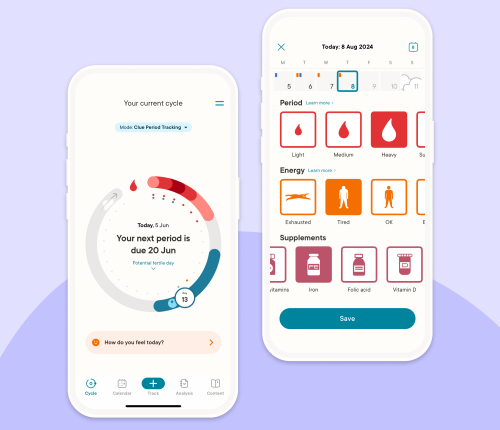
Heavy periods & low iron leave perimenopausal women exhausted
October is World Menopause Month, and an Irish company is questioning why the debilitating consequences of menstruation, perimenopause and the menopause are rarely discussed, and, instead, are accepted as part of being a woman.
Active Iron campaign ambassador, Maura Derrane, says that although menstruating is a natural life process, affecting half the population, the impact of problem periods on women’s health and wellbeing is largely hidden. The TV presenter, wife and mum, discussed the findings of a survey¹, by iron supplement brand, Active Iron, that illustrates the physical, emotional and societal impact of perimenopause and heavy periods among women in Ireland and the UK.
The research indicates 58% of perimenopausal women have heavy periods, with 80% of them feeling tired all the time. 64% report mood changes as the most common symptom of perimenopause, and tiredness and fatigue in second place.
Over half of the women, 55%, believe problem periods are just a part of being a woman, despite the negative impact on their quality of life.
Maura Derrane says better understanding of menstruation and menopause supports women in taking control of their symptoms.
“If, when periods get heavier, we can lose iron stores, then tiredness, brain fog and low mood are probably not surprising. But women just accepting the discomfort does not make sense. We need to change this hopeless viewpoint and encourage more women to get help.”
Perimenopause, the transition to menopause, when periods stop, is a time of hormonal fluctuation that can cause irregular menstrual periods and both physiological and psychological symptoms. The average age of menopause is 51 years old, though it can be 4-6 years earlier.
There is a strong association between heavy periods and low iron in perimenopausal women. With fluctuating hormone levels, periods can become heavy and unpredictable. This can lead to iron loss, and potentially persistent low iron over time. Consequences include tiredness, chronic fatigue, lack of energy, dizziness, difficulty concentrating and being prone to illness.

We need to talk!
Talking to your doctor or healthcare provider is important, Maura Derrane says, while acknowledging that Irish people are not good at discussing menstruation. 48% of women surveyed said they’d rather talk to friends and family, than a medical professional, and 1 in 4 had never sought support or advice for the symptoms of heavy periods.
Supporting the Active Iron awareness campaign, GP and broadcaster, Dr Ciara Kelly, says women experience the menopause transition differently. But, up to 80% have physical and, or, emotional symptoms, lasting up to ten years.
“Symptoms can have a significant impact on health and wellbeing, personal and social relationships, as well as work and careers, and they may be long-lasting. Early menopause affects women under the age of 45. But no matter when it occurs, it’s often at a time when women are juggling demanding jobs, school-age children and elderly parents”, Ciara Kelly says.
Perimenopause and menopause symptoms include hot flushes and sweats, tiredness and sleep disturbance, joint and muscle aches, heart palpitations, mood swings, anxiety and depression, forgetfulness, lack of concentration, genitourinary conditions, dyspareunia and low libido.
On top of this, low iron levels due to heavy and irregular periods, will make perimenopause symptoms, like fatigue and cognitive problems, worse, according to Ciara Kelly.
“There isn’t wide awareness that low iron can be a problem for menstruating women. And another complication, in identifying low levels in perimenopause, is that symptoms often overlap with those attributed to hormonal changes.
Where women track their cycle, and note changes in symptoms, particularly if taking an iron supplement like Active Iron, then they can identify if low iron was a cause of fatigue or poor concentration”.
In order for women to better track their menstrual health, Active Iron has partnered with Clue, offering free access to the leading menstrual and reproductive health app. The globally recognised app monitors menstrual symptoms and offers personalised health insights.

For a limited period, Active Iron customers can now get a free year's subscription to Clue, worth €39.99, with purchased. Eimear Daly Marketing Manager at Active Iron, says.
“Heavy periods are the main cause of low iron levels in women under fifty, and they’re common during perimenopause. Monitoring symptoms on the app and taking iron to help with issues like tiredness can put women back in control of their menstrual health”.
Some older iron formulations are poorly tolerated, with side effects like nausea and constipation reported. This has caused women to discontinue them, in the past, reducing the chance of improving their iron stores and resulting energy levels.
In contrast, Active Iron has a highly effective and tolerable formula, Eimear Daly says.
“Active Iron is clinically proven to increase iron and energy levels by 94%, while helping to avoid common side effects of iron supplements. It is non-constipating and gentle. Supplementation can be used as a tool to support menstrual and perimenopausal fatigue, helping improve energy and quality of life, workplace performance, and physical, social and cognitive function”.
Visit activeiron.com/clue to learn more about Active Iron’s promotion with Clue and to redeem offer.






